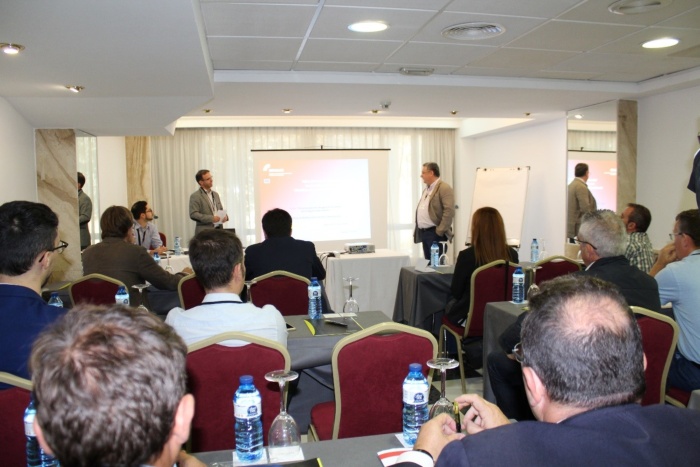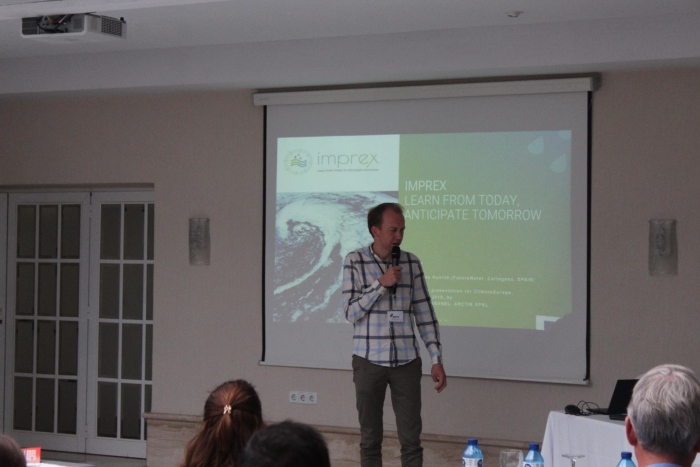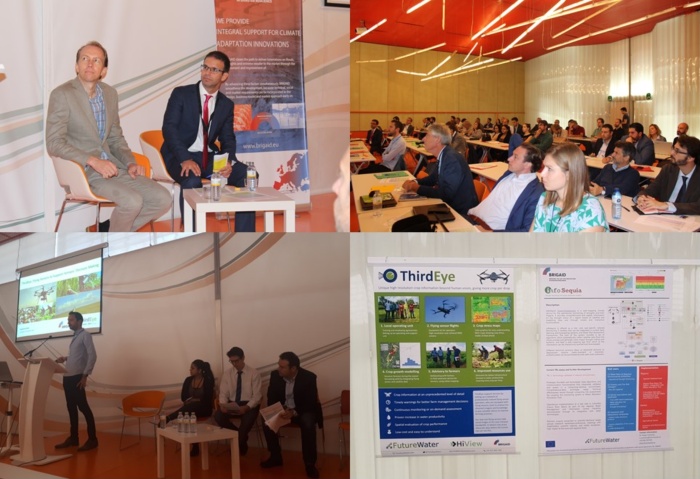During October 17, 18 and 19, several activities co-organized by FutureWater and Icatalist took place in Cartagena in the framework of the 6th Regular Meeting of the EU-H2020 BRIGAID project.
During the first day, a selection of innovators, users and financing actors from the region and the rest of Europe were gathered around a thematic workshop on the concept of Community of Innovation (CoI) as a sustainable and effective instrument for the co-development and implementation of innovative solutions for improving climate change adaptation and reducing the risks to hydrometeorological disasters. During the workshop, general aspects regarding financing tools and sustainability of CoIs were discussed, but also opportunities, and the main barriers and challenges around three particular case studies focused on the impacts of droughts and water scarcity in the agrosystem Campo de Cartagena-Mar Menor, flash floods in the Murcia region, and wildfires at the Iberian Peninsula scale.
During the second day the regular-coordination meeting of the project took place in which the coordinators and partners provide the latest progresses made. At this time, special attention was paid to aspects related to the exploitation strategies for results, for which different representatives of other European projects or initiatives were invited (Climate-KIC, BINGO, IMPREX, RESCUE, Diverfarming, NAIAD, I-REACT, etc.) to explore synergies and future collaboration.
On the last day, BRIGAID and the tools developed in its frame were officially presented in Spain. Different success stories of innovators who have received (or are receiving) the support of BRIGAID, or existing Communities of Innovation that are being promoted by the project were also presented. Finally, an innovation marketplace was organized where different companies and technological centers could explain their solutions and prototypes to end-users and funding actors and investors who, at the same time, raised the most important challenges and needs in the region for CC adaptation and DRR. The conference concluded with a technical visit to the Tomás Ferro Experimental Station managed by the UPCT and Los Alcázares WWTP where different technologies and solutions of desalination and denitrification are being tested.
The event was considered a success in view of the high number of participants (approximately 100 people in total) and the high interest aroused in the region.





